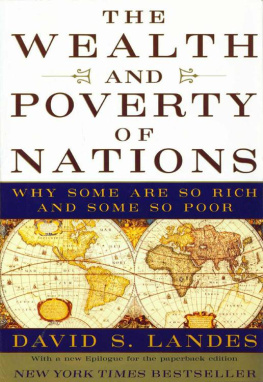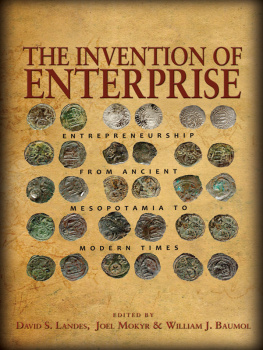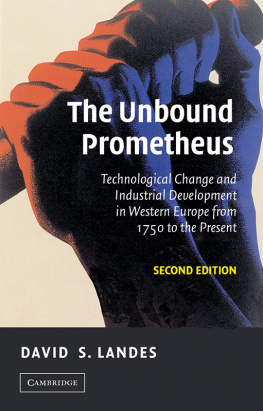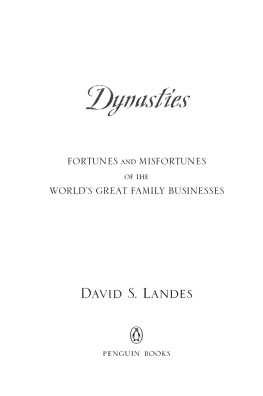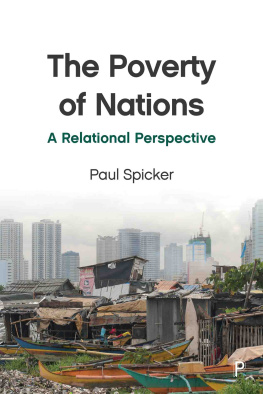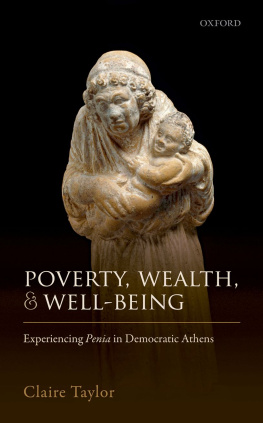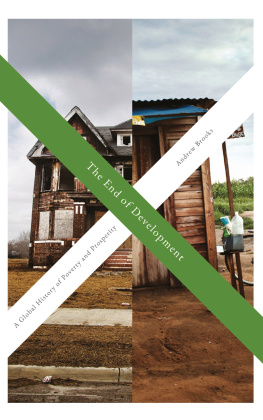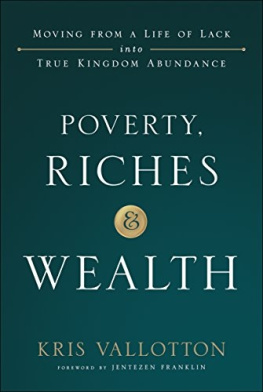Also by DAVID S. LANDES
For my children and grandchildren, with love.
the causes of the wealth and poverty of nationsthe grand object of all enquiries in Political Economy.
Preface and Acknowledgments
My aim in writing this book is to do world history. Not, however, in the multicultural, anthropological sense of intrinsic parity: all peoples are equal and the historian tries to attend to them all. Rather, I thought to trace and understand the main stream of economic advance and modernization: how have we come to where and what we are, in the sense of making, getting, and spending. That goal allows for more focus and less coverage. Even so, this is a very big task, long in the preparing, and at best represents a first approximation. Such a task would be impossible without the input and advice of otherscolleagues, friends, students, journalists, witnesses to history, dead and alive.
My first debt is to students and colleagues in courses at Columbia University, the University of California at Berkeley, Harvard University, and other places of shorter stays. In particular, I have learned from working and teaching in Harvards undergraduate programs in Social Studies and the Core Curriculum. In both of these, teachers come into contact with students and assistants from the full range of concentrations and other faculties and have to field challenges from bright, contentious, independent people, unintimidated by differences in age, rank, and experience.
Second, thanks largely to the sympathetic understanding of Dr. Alberta Arthurs, this work received early support from the Rockefeller Foundation, which funded research and writing and brought a number of scholars together for inspiration and intellectual exchange in its beautiful Villa Serbelloni in Bellagio, Italythere where the younger Pliny once reconciled beauty, work, and leisure on the shores of Lake Como. Easy to succumb. The meeting led to publication of Favorites of Fortune (eds. Patrice Higonnet, Henry Rosovsky, and myself) and gave me the opportunity to write a first essay on the recent econometric historiography of European growth. Among the people who helped me then and on other occasions, my two co-editors, Higonnet and Roskovsky; also Robert Fogel, Paul David, Rudolf Braun, Wolfram Fischer, Paul Bairoch, Joel Mokyr, Robert Allen, Francois Crouzet, William Lazonick, Jonathan Hughes, Francois Jequier, Peter Temin, Jeff Williamson, Walt Rostow, Al Chandler, Anne Krueger, Irma Adelman, and Claudia Goldin.
The Rockefeller Foundation also supported two thematic conferencesone on Latin America in 1988 and another on the role of gender in economic activity and development the following year. Among those who contributed to these stimulating dialogues, exercises in rapid-fire instruction, I want to cite David Rock, Jack Womack, John Coatsworth, David Felix, Steve Haber, Wilson Suzigan, Juan Dominguez, Werner Baer, Claudia Goldin, Alberta Arthurs, and Judith Vichniac.
I also owe a debt of gratitude to Armand Clesse and the Luxembourg Institute for European and International Studies. Mr. Clesse has become one of the key figures in the mobilization of scholars and intellectuals for the discussion and analysis of contemporary political, social, and economic problems. His main theme is the vitality of nations, which has been interpreted broadly to mean just about anything relevant to national performance. The product has been a series of conferences, which have not only yielded associated volumes but promoted a growing and invaluable network of personal contacts among scholars and specialists. A Clesse conference is a wonderful mixture of debate and sociabilitya usually friendly exercise in agreement and disagreement. In 1996, Mr. Clesse organized just such a meeting to deal with the unfinished manuscript of this book. Among those present: William McNeill, global historian and successor in omniscience to that earlier historian of Greece, Arnold Toynbee; Stanley Engerman, Americas economic history reader and critic extraordinary; Walt Rostow, perhaps the only scholar to return to original scholarship after government service; Rondo Cameron, lone crusader against the concept and term of Industrial Revolution; Paul Bairoch and Angus Maddison, collectors and calculators of the numbers of growth and productivity.
A similar meeting, on The Singularity of European Civilization, was held in June 1996 in Israel, under the sponsorship of the Yad Ha-Nadiv Rothschild Foundation (Guy Stroumsa, coordinator), bringing some of the same people plus another team, medieval and other: Patricia Crone, Ron Bartlett, Emanuel Sivan, Esther Cohen, Yaacov Metzer, Miriam Eliav-Feldon, Richard Landes, Gadi Algazi, et al.
Other venues where I was able to try out some of this material were meetings in Ferrara and Milan (Bocconi University) in 1991; the III Curso de Historia de la Tcnica in the Universidad de Salamanca in 1992 (organizers Julio Sanchez Gomez and Guillermo Mira); a Convegno in 1993 of the Societ Italiana degli Storici dellEconomia (Vera Zamagni, secretary) on the theme of Innovazione e Sviluppo several sessions of the Economic History Workshop at Harvard; the Jornadas Bancarias of the Asociacin de Bancos de la Repblica Argentina in Buenos Aires in 1993 on Las Estrategias del Desarrollo a congress in Hull, England, in 1993 (Economic History Society, Tawney Lecture); a conference in Cambridge University on Technological Change and Economic Growth (Emma Rothschild, organizer) in 1993; Jacques Marseille and Maurice Levy-Lcboyers colloquium (Institut dHistoire conomique, Paris, 1993) on Les performances des entreprises franaises au XXe sicle a conference on Convergence or Decline in British and American Economic History at Notre Dame University in 1994 (Edward Lorenz and Philip Mirowski organizers, Donald McCloskey promoter); a session on the Industrial Revolution (John Komlos organizer) at the Eleventh International Economic History Congress in Milan in 1994; and a session at the Social Science History Association in Atlanta in 1994.

